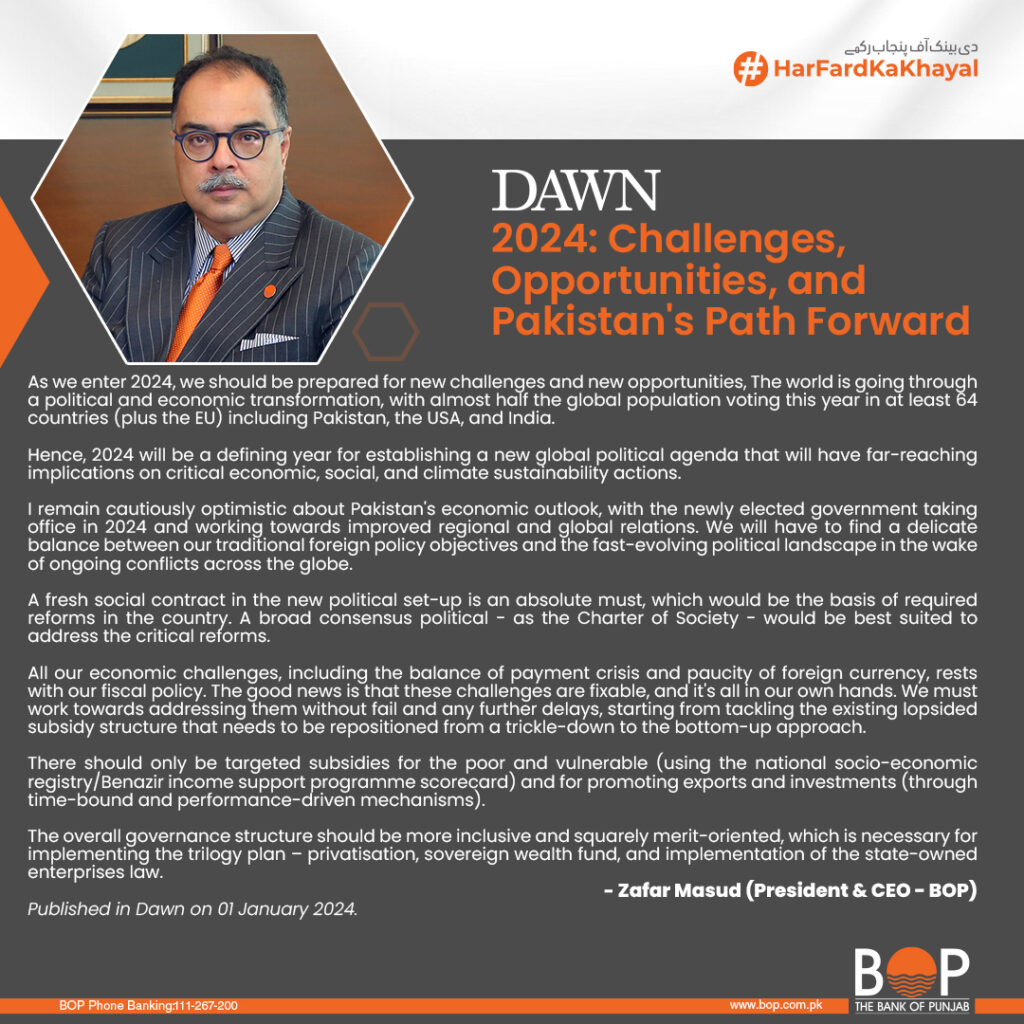Opportunities and Pakistan’s Path Forward by Zafar Masud
Zafar Masud (President & CEO – BOP) gave his outlook analysis for 2024, focusing on different facets, including the economy and reforms, etc., which was published in the Dawn.com newspaper. Read in Dawn ePaper

He further stated, “The tax structure must be made judicious, with each sector paying taxes according to its fair share vis a vis contribution to GDP, especially real estate, retail and agriculture. Private-Public-Partnership is the name of the game to implement efficient and effective public sector development program (aimed fundamentally at infrastructure, health, and education). The fiscal policy can be strengthened through pension fund management along with much-needed civil services reforms. Strengthening institutions through the use of technology & digitization, will be key to sustainable economic growth and development of Pakistan.
Challenges, Opportunities and Pakistan’s Path Forward
As we enter 2024, we should be prepared for new challenges and new opportunities. The world is going through a political and economic transformation, with almost half the global population voting this year in at least 64 countries (plus the EU) including Pakistan, the USA, and India.
Hence, 2024 will be a defining year for establishing a new global political agenda that will have far-reaching implications on critical economic, social, and climate sustainability actions.
I remain cautiously optimistic about Pakistan’s economic outlook, with the newly elected government taking office in 2024 and working towards improved regional and global relations. We will have to find a delicate balance between our traditional foreign policy objectives and the fast-evolving political landscape in the wake of ongoing conflicts across the globe.
A fresh social contract in the new political set-up is an absolute must, which would be the basis of required reforms in the country. A broad political consensus — ‘Charter of Society’ — would be best suited to address the critical reforms.
All our economic challenges, including the balance of payment crisis and paucity of foreign currency, rests with our fiscal policy. The good news is that these challenges are fixable, and it’s all in our own hands. We must work towards addressing them without fail and any further delays, starting from tackling the existing lopsided subsidy structure that needs to be repositioned from a trickle-down to the bottom-up approach.
There should only be targeted subsidies for the poor and vulnerable (using the national socio-economic registry/Benazir income support programme scorecard) and for promoting exports and investments (through time-bound and performance-driven mechanisms).
The overall governance structure should be more inclusive and squarely merit-oriented, which is necessary for implementing the trilogy plan — privatisation, sovereign wealth fund, and implementation of the state-owned enterprises law.
